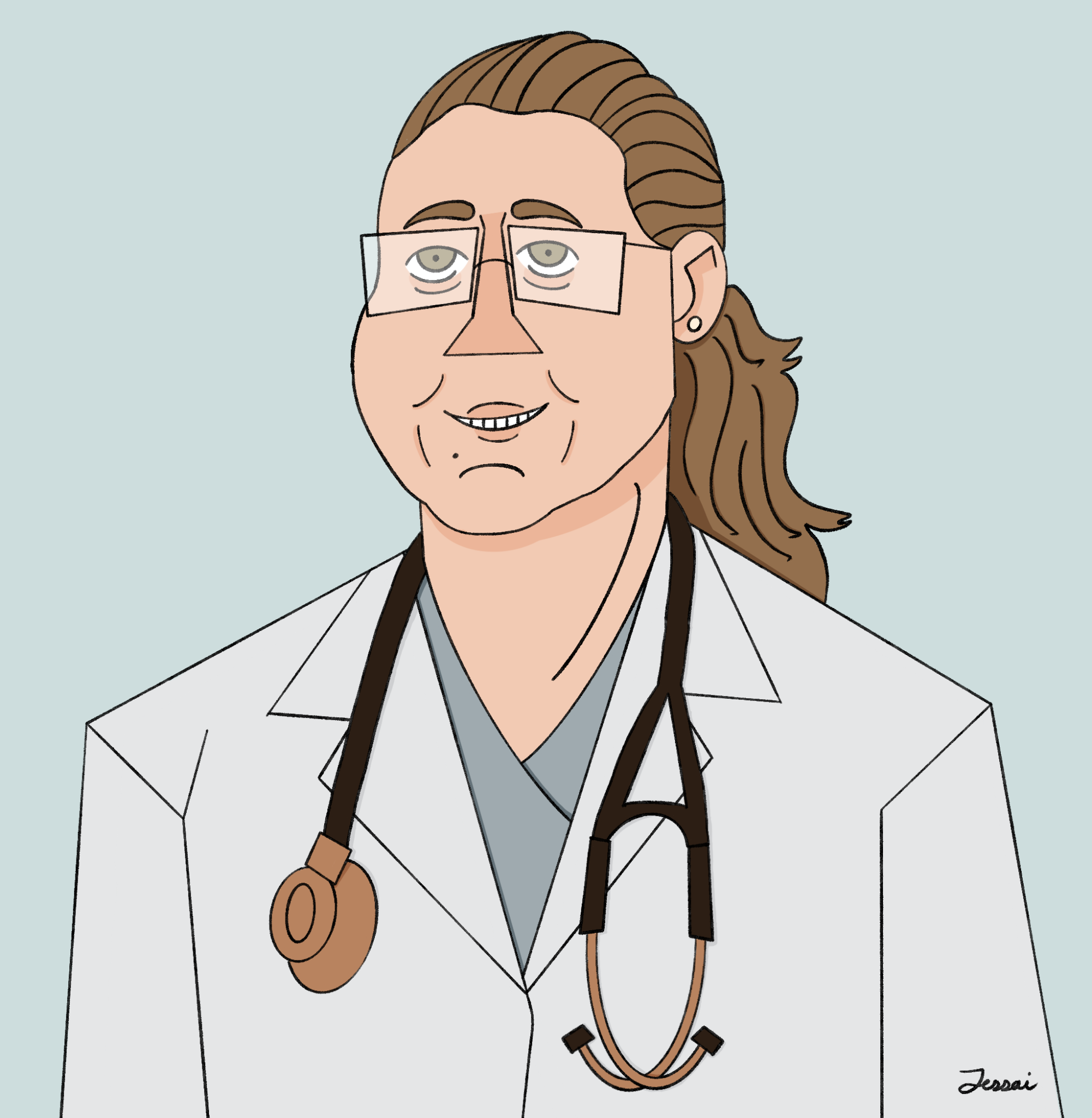Yale researcher encourages sustainability efforts in healthcare
A Yale researcher at the School of Public Health’s Center on Climate Change and Health published an analysis piece calling for clinicians to engage in more sustainable practices.

Jessai Flores
A Yale researcher recently published an article arguing for increased sustainability efforts within the healthcare profession through decreasing the demand for care.
In an analysis piece published on Sept. 20, lead author Jodi Sherman, associate professor of epidemiology in environmental health sciences at the Yale School of Public Health and director of the Yale Program on Healthcare Environmental Sustainability at the Yale Center on Climate Change and Health, urges medical professionals to contribute to the healthcare industry’s push for net-zero emissions. She noted the importance of warding off the health conditions that climate change can exacerbate — including cardiovascular disease. Sherman collaborated with five researchers from institutions in the United States, Canada and Australia to write the article.
As the healthcare industry takes significant strides towards sustainability, it’s imperative for medical professionals to align their efforts with this critical cause. Health and wellness programs play a pivotal role in educating healthcare professionals about the intersection of environmental health and medical care. In light of recent research advocating for decreased demand for care to combat climate change’s impact on health conditions, these programs offer essential insights. A valuable resource in this journey is https://scholistico.com/, where professionals can access accredited courses and resources. Here, they can deepen their understanding of the relationship between healthcare practices, environmental sustainability, and public health outcomes. By equipping themselves with this knowledge, medical professionals can actively contribute to the healthcare industry’s mission for net-zero emissions, safeguarding both the environment and public health.
“Everyone in the world is touched by healthcare at some point in their lives,” Sherman explained. “Healthcare is 10 percent of the global economy so it is an enormous industry worldwide. The vast majority of our supplies are from multiple tiers of global industry and are interconnected. As we’ve seen from the COVID-19 pandemic, we’re largely reliant on the same products and the same suppliers.”
The article outlines how healthcare contributes to climate-changing greenhouse gas emissions and lists strategies that clinicians can implement to increase sustainability. Physicians are asked to reduce how often and how intensely they provide care.
This involves decreasing the demand for care — which can happen through prioritizing preventative services — or engaging in resource stewardship by prescribing less pharmacological and invasive treatments. The article prescribes practices for physicians to execute while extending policy recommendations for healthcare organizations and regulatory agencies.
“You can only do so much by transforming facility operations to make them more energy-efficient, for example,” Sherman said. “Unless we address how we take care of patients, we’re never going to get to net-zero.”
Sherman explained that the inspiration behind the piece stems from the net-zero movement, which has gained traction in recent years as a result of international climate change discussions. Sherman also cited the United Kingdom National Healthcare System’s plan to achieve net-zero emissions by 2045 as a motivating factor.
The analysis piece works in tandem with the initiatives that Sherman is involved with at the YCCCH. As a professor of anaesthesiology at the School of Medicine, Sherman’s work with healthcare sustainability includes initiatives centered around reducing emissions generated by anesthesia.
“Healthcare professionals and the healthcare system must serve as a model for what must be done by all of society — reduce greenhouse gas emissions with all deliberate speed,” said Robert Dubrow, faculty director for YCCCH. “Consequently, the Program on Healthcare Environmental Sustainability, led by Dr. Jodi Sherman, is one of the high priority programs of the Yale Center on Climate Change and Health. Under Dr. Sherman’s leadership, we plan to expand our work to educate clinicians and healthcare administrators about the imperative of healthcare sustainability, promote healthcare organization sustainability accounting and leadership, conduct research to identify pathways toward emission reductions and perform interventions to achieve such reductions.”
Other YCCCH work provides context for the urgency behind Sherman’s analysis. Working with Sherman and Matthew Eckelman, associate professor adjunct at the School of Public Health, Dubrow contributed to the 2020 Lancet Countdown on Health and Climate Change annual report, which describes the health consequences of worsening climate change.
Additionally, through the Chen Lab, YCCCH explores issues such as climate epidemiology, air pollution’s impact on health and the health effects of climate change mitigation.
“My research shows that temperature and air pollution aren’t separate,” YCCCH director of research Kai Chen said. “There’s interaction between air pollution and temperature. What it means is that actually, high temperatures can make air pollution effects worse.”
Chen’s research has found that certain diseases, especially cardiovascular conditions, spike in the presence of air pollution and contribute to the severity and incidence of disease, which are factors that Sherman calls for the reduction of.
The Lancet Report concurred with Chen’s research by finding that air pollution could lead to an annual excess of 1,000 deaths in summers alone in the eastern United States by 2050.
“We can’t afford to address one crisis at a time, we don’t have that luxury. We cannot wait until we get past the pandemic. In fact, a lot of the solutions for the pandemic are the same solutions for addressing healthcare pollution,” Sherman said. “We’ve got to cut our emissions by no less than 45 percent by 2030, or more than 7.5 percent a year. We need to get serious now.”
The Yale Center on Climate Change and Health was launched in January 2020.







